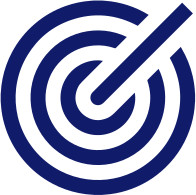
To evaluate the support received by people with intellectual disabilities in independent living contexts, collecting the perspectives of professionals and people with intellectual disabilities themselves.
This is a guide to an individual, personalised application that will provide orientation on the proposals for improvement to be implemented to promote support along the lines proposed by the United Nations to the Convention on the Rights of Persons with Disabilities (2006 and 2017), specifically, articles 4 and 31, which establish that people with disabilities must participate in decisions that affect their lives, including those related to the supports they receive.
It consists of two forms, one for the people receiving support and one for the professionals providing support. These forms are organized around four dimensions. For each dimension, certain areas are identified, and for each area, some indicators and some items are provided.

The guide is based on the social inclusion model by Simplican, Leader, Kosciulek and Leahy (2015), which leads on from an ecological approach that distributes the most relevant variables on 5 levels (Individual, Interpersonal, Organizational, Community and Sociopersonal). The GAS-VI Guide specifically contemplates 4 of these levels and names them dimensions: Individual, Interpersonal, Organizational, Community.
The GAS-VI Guide is part of the research project on independent living of people with intellectual disabilities, funded by the Ministerio de Economía y Competitividad, within the Retos de la Sociedad program (Ref. EDU2014-55460-R) and is one of the outputs of a research project on the construction and management of social support networks of people with intellectual disabilities, funded by the Miniestrio de Economía, Industria y Competitividad, within the Spanish program Investigación, Desarrollo e Innovación Orientada a los Retos de la Sociedad (Ref. EDU2017-84989-R). Both research projectes have been coordinated by Maria Pallisera and Judit Fullana, and developed by the Research Group on Diversity of the University of Girona.
Based on the research carried out, a series of support features are identified that can facilitate the development of independent living processes in accordance with the provisions of the Convention on the Rights of Persons with Disabilities (UN; 2006) and a first version of the Guide is prepared for professionals, which undergoes a validation process using the following process. On June 28, 2018, a workshop was held with 23 professionals from 10 different organizations that provide services to people with intellectual disabilities throughout Catalonia: Down Lleida, Altem Foundation, Astres Foundation-Educational Platform, Astrid 21 Foundation, Catalan Down Syndrome Foundation, Estany Foundation, Pere Media Foundation, El Vilar Private Foundation and the Ramon Noguera Foundation. TRESC Foundation, Alba Workshop. The professionals participated in 4 discussion groups and analyzed the indicators and items of the Guide.
Once the Guide for Professionals was completed, the Guide aimed at people who receive support was completed. This information was analysed by the members of the Diversity Research Group and by the Advisory Committee of this group. The Advisory Committee is made up of people with intellectual disabilities who, since 2012, have collaborated with the Diversity Research Group as advisors and also carry out their own research, with the support of the researchers of the research group. In September 2018, the Advisory Committee reviewed the dimensions and areas of the Guide and raised relevant issues to assess the support that people with disabilities receive in their own home or in other types of housing.
In 2021, the Research Group obtained funding from the Ministerio de Ciencia e Innovación through the call for R+D+I Projects for the realization of “Concept Tests” (Ref. PDC2021-121510-I00). This funding is intended for the development and validation of the GAS-VI Guide.
The following people participated in the preparation of the guide: Maialen Beltran, Ivan Castro, Montse Castro, Gemma Diaz-Garolera, Judit Fullana, Paulina Mejía, Maria Pallisera, Carolina Puyaltó, Ana Rey, Maria Josep Valls and Montserrat Vilà.
From all the scores collected, an average of the scores of each indicator is calculated. If a question is not answered, it will be counted as 0. From this score it will be possible to assess whether the aspects of the support that is provided to the person to whom that indicator refers are positively assessed by the professional or whether it would be necessary to review it and think about possible changes that help improve the support that is provided.
Professionals respond to the GAS-VI guide on a scale of 1 to 5. In order to facilitate comparison with the responses of those receiving support, the resulting average for each indicator will be classified into three levels:
From this score it will be possible to assess whether the aspects of the support that is provided to the person to whom that indicator refers are positively assessed by the professional or whether it would be necessary to review it and think about possible changes that help improve the support that is provided.
Three levels of response are established, based on the resulting average:
From this score it will be possible to assess whether the aspects of the support that is provided to the person to whom that indicator refers are positively assessed by the professional or whether it would be necessary to review it and think about possible changes that help improve the support that is provided.
The results can be printed or saved in pdf.
When the professional finishes the form and receives the results, they can consult a document of proposals for improvement that can be considered to improve the support practices. There is the option to download the “Proposals for improvement” complete document.
If you are interested in participating in this project, please, contact the Research Group on Diversity from de Universitat de Girona, through e-mail: maria.pallisera@udg.edu; judit.fullana@udg.edu.